Central African Republic
The Central African Republic is bracing itself for a second round of parliamentary elections on Sunday, which comes after a rise in rebel violence following December's presidential vote.
Rebels calling themselves the Coalition of Patriots for Change (CPC) launched attacks, first to disrupt the Dec. 27 elections and then to destabilise the newly-elected government of President Faustin Archange Touadera.
The insurgents, who the United Nations say are backed by former president François Bozizé, tried to take control amid allegations of voting irregularities.
In January, they laid siege to the capital Bangui.
Humanitarian crisis
The United Nations estimates that 240,000 people are displaced in the country since mid-December.
Read more: The displaced find refuge in a school as violence escalates in CAR
Hundreds of thousands of people are also left without basic food or health care, and with the main roads between the Central African Republic and Cameroon closed for almost two months, prices have skyrocketed leaving families unable to afford food.
The rebels control nearly two-thirds of the country, making it difficult to deliver humanitarian aid. Aid delivery was stopped for nearly a month in some zones.
How did the instability start?
Central African Republic’s instability erupted into fighting in Bangui in 2013 when the Seleka rebels coming from the north seized power from then-President Francois Bozize.
Later that year, the Seleka government was challenged by a militia group that formed in response and called themselves the anti-Balaka. Fighting spiraled, with targeted attacks that left thousands dead in the capital and displaced hundreds of thousands more.
The newly formed rebel coalition includes armed groups from both the ex-Seleka and anti-Balaka.
The Seleka rebel president eventually stepped aside amid international pressure and an interim government organized democratic elections in 2016, which Touadera won.
Read more: The Battle for Central African Republic city of Bangassou
Central African Republic: scores of rebels killed as tensions rise
The fresh violence began after the courts rejected Bozize from running in the December 27 vote. He was barred from running because of an arrest warrant over torture and murder.
Six of the 14 armed groups that control two-thirds of the country reneged on a peace pact with President Touadera in mid-December.
The six armed groups joined forces and launched an offensive, vowing to disrupt December's elections and march on the capital in what the government called an attempted coup.
On January 3, several hundred heavily armed men attacked government troops in Bangassou. They also assaulted the highly trained paramilitary forces of Russian private security firm Wagner.
Will Sunday's vote be peaceful?
In the first round and the simultaneous presidential election in December, only one in three people could cast their vote due to the unrest.
There will be no voting in the villages under CPC control.
Despite the rebel offences, the Central African Republic's army has retaken several rebel strongholds.
The country's army is backed by Rwandan and Russian forces. It is also supported by United Nations peacekeepers.
The troubled former French colony has been riven by conflict since 2013, and two-thirds of its territory is controlled by militia groups.
What's at stake in the legislative vote?
Faced with a divided opposition and a Kwa Na Kwa party whose leader François Bozizé is accused of complacency with the rebels, the United Hearts Movement (MCU) of President Touadéra should retain its majority in the breasts of the 140 seats of deputies to be filled.
There will be run-off votes in 49 electoral districts.
Due to previous violence that stopped polling, there will be first-round voting in 69 districts.




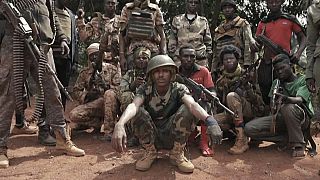
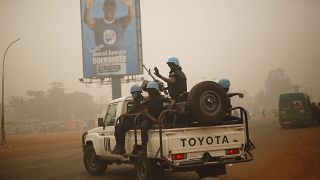
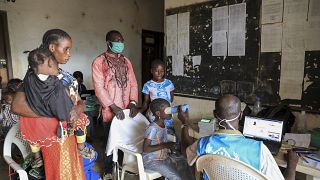

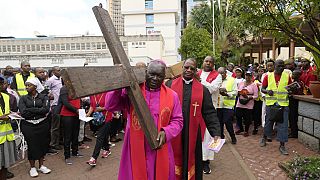
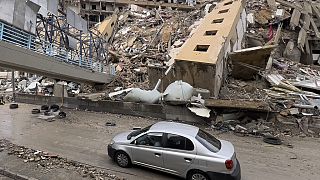

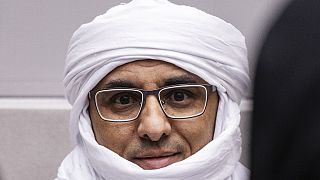
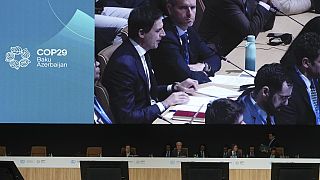
01:08
Mozambique: Opposition leader Venancio Mondlane faces legal action
02:09
Russia vetoes UN resolution calling for immediate cease-fire in Sudan
01:00
Senegal's ruling Pastef party claims victory in snap legislative electioins
01:10
Senegal parliamentary elections: Polls open, over 7 million expected to vote
01:12
Deaths in war-torn Sudan significantly higher than previous tolls, according to new report
00:59
Senegal parliamentary elections: Former rivals face off again